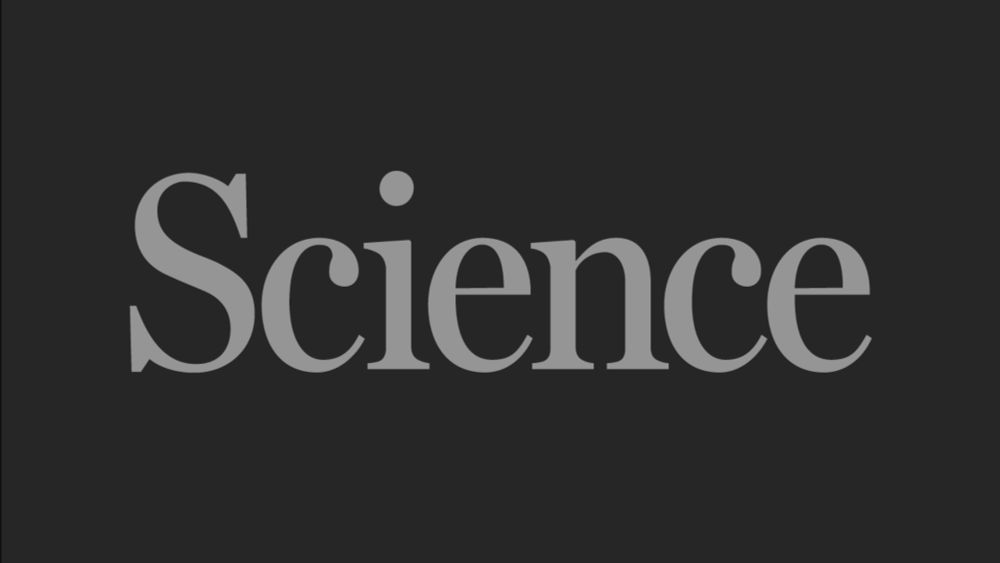
I study why people care and discuss about societal, systemic issues like climate change, technology, and disinformation.
❤️=bookmarks
www.techdirt.com/202...

www.techdirt.com/202...
1️⃣ replicate an existing experiment
2️⃣ run a novel experiment
on repdata.com
3️⃣ coauthor with Mary McGrath and me to meta-analyze the replications and existing studies
4️⃣ publish your study
details: alexandercoppock.com/replication_...
applications open Feb 1
please repost!

1️⃣ replicate an existing experiment
2️⃣ run a novel experiment
on repdata.com
3️⃣ coauthor with Mary McGrath and me to meta-analyze the replications and existing studies
4️⃣ publish your study
details: alexandercoppock.com/replication_...
applications open Feb 1
please repost!
Seeing your crazy uncle at a wedding?
Yoga friend fall down a conspiracy funnel?
Want to scrub your info from the internet?
I'm your gal 💁🏻♀️
forms.gle/P6WbpFaqMrSv...

Seeing your crazy uncle at a wedding?
Yoga friend fall down a conspiracy funnel?
Want to scrub your info from the internet?
I'm your gal 💁🏻♀️
forms.gle/P6WbpFaqMrSv...

hdr.undp.org/content/huma...
hdr.undp.org/content/huma...

👉 That's why we're pleased to share the #ClimateFactsMatter campaign by @euclimateaction.bsky.social, incl. a digital handbook co-created w/ experts from EDMO + EDMO Hubs: edmo.eu/edmo-news/cl...
👉 That's why we're pleased to share the #ClimateFactsMatter campaign by @euclimateaction.bsky.social, incl. a digital handbook co-created w/ experts from EDMO + EDMO Hubs: edmo.eu/edmo-news/cl...
“The US state department is set to fund Maga-aligned think-tanks and charities across Europe to disseminate Washington’s policy positions and challenge perceived threats to free speech.”
via @annasophiegross.bsky.social and colleagues

1/9
1/9

🔬 The role
Experimental consumer research
Focus on sustainable food consumption, policy, & food environments
📅 Start: April 2026 (flexible)
⏳ Duration: 29 months (extendable)
🗓 Deadline: 16 Feb 2026
Feel free to share with anyone 🌱
🔬 The role
Experimental consumer research
Focus on sustainable food consumption, policy, & food environments
📅 Start: April 2026 (flexible)
⏳ Duration: 29 months (extendable)
🗓 Deadline: 16 Feb 2026
Feel free to share with anyone 🌱
Help spread the word!
tiny.cc/GEN30Jan26

Help spread the word!
tiny.cc/GEN30Jan26
Help spread the word!
tiny.cc/GEN30Jan26

Help spread the word!
tiny.cc/GEN30Jan26
The UK Govt has quietly published - without announcement - the Joint Intelligence Committee/DEFRA report it suppressed last October. They tried to sneak it out in the midst of crisis. Read and share:
“Global Biodiversity Loss, Ecosystem Collapse & National Security.”
(link below)
The UK Govt has quietly published - without announcement - the Joint Intelligence Committee/DEFRA report it suppressed last October. They tried to sneak it out in the midst of crisis. Read and share:
“Global Biodiversity Loss, Ecosystem Collapse & National Security.”
(link below)
Keynotes: @lauraknelson.bsky.social and @lorenzspreen.bsky.social
computational-social-science.org/workshops/20...
Keynotes: @lauraknelson.bsky.social and @lorenzspreen.bsky.social
computational-social-science.org/workshops/20...
"Faced with the brutalisation of the world, France and Europe must defend an effective multilateralism, because it serves our interests and those of all who refuse to submit to the rule of force"
"Faced with the brutalisation of the world, France and Europe must defend an effective multilateralism, because it serves our interests and those of all who refuse to submit to the rule of force"
Last night a preprint dropped that tries to get at this with some numbers. My piece in @science.org (and 🧪🧵 coming):

In new work, we find 50% of high profile social media papers are connected to big tech through funding, collaboration and employment. Most connections aren't disclosed. @jbakcoleman.bsky.social @jevinwest.bsky.social @carlbergstrom.com 1
arxiv.org/abs/2601.11507

In new work, we find 50% of high profile social media papers are connected to big tech through funding, collaboration and employment. Most connections aren't disclosed. @jbakcoleman.bsky.social @jevinwest.bsky.social @carlbergstrom.com 1
arxiv.org/abs/2601.11507
#giftlink

#giftlink
jobs.exeter.ac.uk/hrpr_webrecr...
jobs.exeter.ac.uk/hrpr_webrecr...
The recent 🇺🇸NSS strategy outlined regime change plans to support the European far right.
A public-private partnership.

The recent 🇺🇸NSS strategy outlined regime change plans to support the European far right.
A public-private partnership.
Topic: AI and the News Ecosystem
See thread by project PI @claesdevreese.bsky.social below.
Please help circulate and/or apply.
#polcomm #academia
📣 Multi-position (PhD and postdoc) call for an interdisciplinary project on "AI in the News Ecosystem: Navigating Trust and Authenticity”
Project @ddc-sdu.bsky.social (Digital Democracy Centre (SDU)).
Multiple positions with different backgrounds and profiles.
Links in🧵
#commsky
Topic: AI and the News Ecosystem
See thread by project PI @claesdevreese.bsky.social below.
Please help circulate and/or apply.
#polcomm #academia
📣 Multi-position (PhD and postdoc) call for an interdisciplinary project on "AI in the News Ecosystem: Navigating Trust and Authenticity”
Project @ddc-sdu.bsky.social (Digital Democracy Centre (SDU)).
Multiple positions with different backgrounds and profiles.
Links in🧵
#commsky


